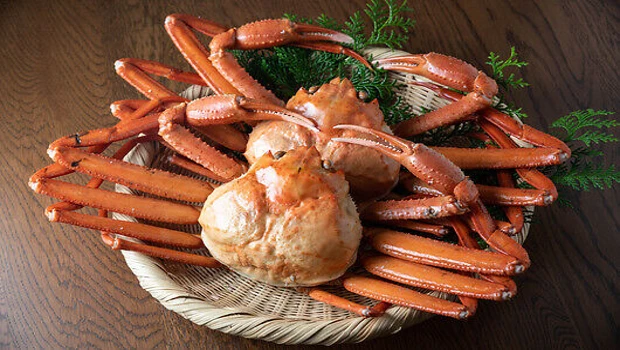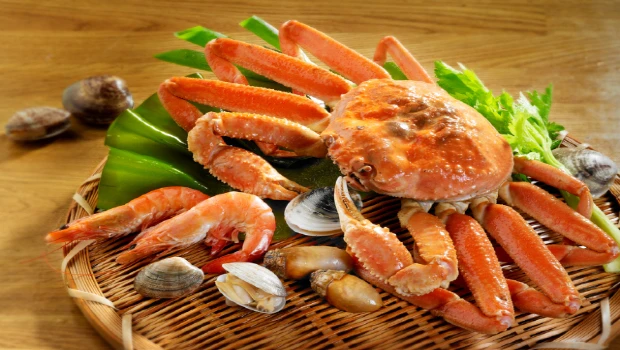Snow crab season, benefits, side effects, storage, protein
Snow crab Nutrition

| Snow crab (100g) Nutrition | |||
| Carbohydrate | Protein | Fat | Calories |
| 0.5g | 15g | 0.8g | 61kcal |
| Main Nutrition | Protein, minerals, chitosan | ||
| Main Benefits | Relieves arthritis, improves immunity, restores energy, and supplements protein. | ||
| Side Effects | Be careful when eating if you are allergic to shellfish. | ||
Snow crabs are crustaceans belonging to the order Decapoda. They live in deep waters, mainly in sand or mud. Its legs are long and straight, and its appearance resembles bamboo, hence the name snow crab. It has a reddish body color and a white belly. There are small protrusions on the back, and the skin is thin. Snow crab has a light and mild taste and is loved by many people. It is mainly eaten steamed or in soup.
Snow crab Benefits

1. Bone health
Eating snow crab may help support bone health. Most crabs contain an ingredient called lysine, which is a type of amino acid. Lysine helps osteoblasts, the cells that make human bone cells. This is effective in building bones. It also helps deposit elements that are good for bones, such as calcium, during the bone growth process. This is effective in promoting overall bone health.
2. Recover Energy
Snow crab contains essential amino acids and various minerals. These help restore lost energy. This is helpful for people with weak stamina or those who need to regain energy. In addition, snow crab has the characteristic of being easily digested. Therefore, even patients with limited food intake can consume it without burden. Thanks to these benefits, snow crab is often consumed as a health food.
3. Increase Immunity
Snow crab is rich in chitosan, which helps boost immunity. This ingredient has the function of activating immune cells in the body, helping to improve immunity. Immune cells play the role of eating up various bacteria and viruses introduced from outside. This prevents disease from occurring and protects the body. Additionally, it is effective in removing carcinogens. This can also help prevent cancer.
4. Diet
Crab is a low-calorie food. It is also rich in protein and has low fat content, so it can be consumed without burden when dieting. And snow crab contains chitin. This ingredient helps suppress fat accumulation in the body and also helps lower cholesterol levels. Additionally, the potassium contained in snow crab helps excrete sodium from the body. This is also effective in removing puffiness.
5. Blood vessel health
Snow crab contains ingredients that help maintain blood vessel health, such as potassium and chitin. First, in the case of potassium, it excretes sodium from the blood and inhibits the formation of blood clots that block blood vessels. This also helps blood circulation. Chitin also helps lower cholesterol levels in the body. This helps control cholesterol levels and is effective in preventing blood fat from rising.
season
Snow crab season lasts from December to May. Many people start looking for it in December, so some people mistake it for a winter food, but snow crabs gain weight by May and are the most delicious.
Storage Method
Raw snow crab should be steamed immediately in a steamer, then divided into portions and stored in the refrigerator. When storing, wrap it in wrap and store it in an airtight container to keep it fresh for up to 3 days.
Side Effect
- Consuming too much snow crab can actually increase cholesterol levels in the body.
- People with a shellfish allergy may experience allergic symptoms when eating snow crab.
References
🔹OrganicFacts: 7 Incredible Crab Benefits
🔹Arctic Crab: Crabs: They are healthy food